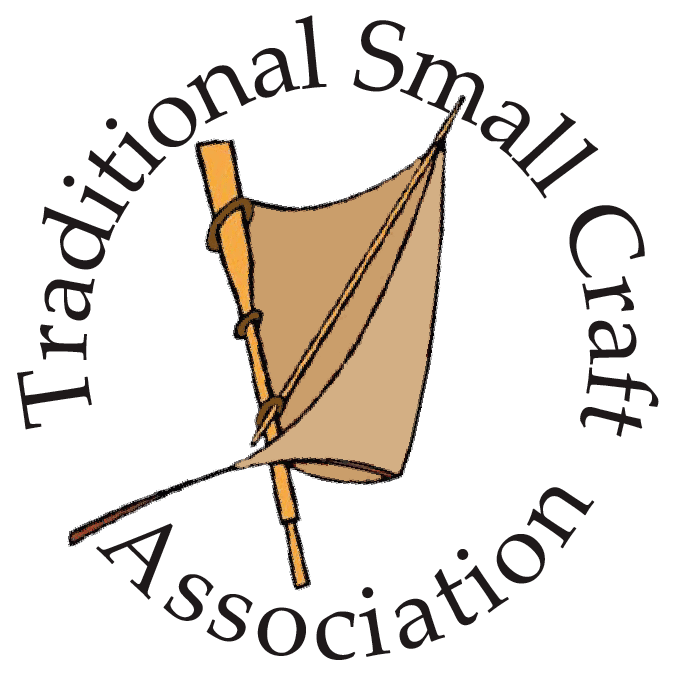the
JOHN GARDNER
FUND
John Gardner
Learn more about the fascinating man who changed boating.
Read more →
Grant
We have a program to help you with your boating endeavors.
Read more →
Rules
Find out the requirements for the application.
Read more →
Apply
Fill out the application and get ready to submit your project.
Read more →
Support
Donate to help support the scholarship.
Read more →
John Gardner
Although John Gardner was a legend among small craft fans and maritime museum folk, he was the driving force behind the formation of the Traditional Small Craft Association.
Even so, many small boat enthusiasts are still not familiar with him or his writings. At best, he’s vaguely referred to as “the dory man,” “the how-to guy,” or “the rowboat fellow.” If you are not familiar with his books, you are missing some of the finest small boat writing of the last 70 years.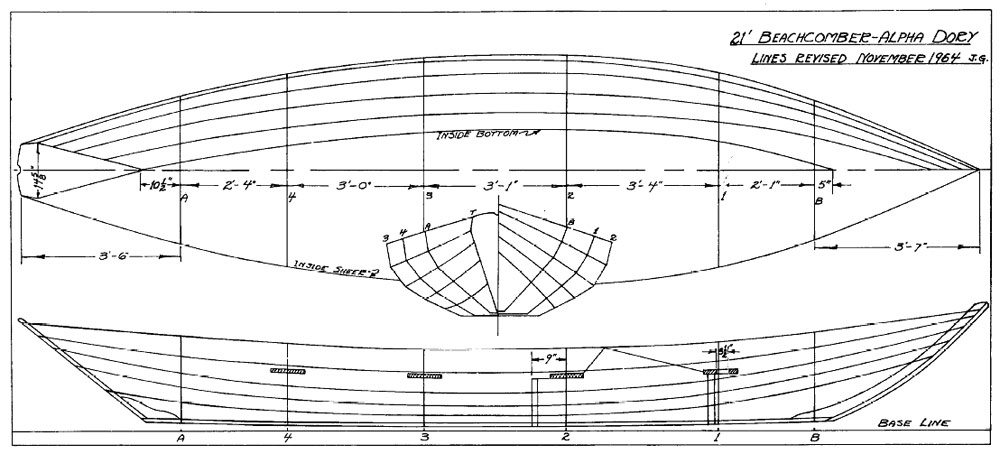
Gardner wrote his books in a technical manner—examining the angles and detailing the mathematics. His books are written as a builder’s guide for the perfect boat—an in-depth approach for the boat fan. This should not, however, deter readers. Gardner’s books are full of interesting twists and turns and chock full of useful facts.
Gardner started writing about boats at the Maine Coast Fisherman magazine in the early 1950’s. The MCF liked people, boats, and reminiscing of days past, targeting many of the older readers. In addition to boating stories, the magazine also hit on everything from the best recipe for oyster stuffing to reinterpreting the finan haddie as a fishery story. It was the perfect place for John Gardner who was a Down East native with deep ties to the region. He used the magazine as a space to draw practical workboats and took an uncommon interest in the taken-for-granted aspects of the waterfront of his time. On the pages of the MCF, Gardner developed a decided and delightful interest in the various rowing and sailing boats tied by time and development to the Northeast coast since the Colonial Era. He could weave a tale of man and coast and boat that few could match, interweaving history with plans and building instructions. He was always on the lookout for a good boat that fit a modest budget, was safe, and useful. There were articles on the Chamberlain and Hammond Dories, on boatbuilding tools and techniques, with an emphasis on boatbuilding for everyone.
On the subject of boatbuilding, he showed no allegiance to any one method old or new; he was as likely to suggest plywood as northern white cedar. He liked galvanized nails and did not appreciate the price of bronze screws. He offered practical advice to people who appreciated a nod in the right direction. As they might say Downeast, “fitting in, he was.”
Due to his practicality and love for boat building, Gardner’s articles began to gain a strong readership. More than a few MCF subscribers had nothing to do with the fisheries, didn’t live in a rural coastal community, and had no interest in commercial boatbuilding, but they did have a fondness for small boats, and were avid followers of Gardner’s essays. His articles were valued for their detailed rowboat lines, exploration of designs, and the homage paid to historic designs. He became a key figure in the revival of traditional small boats, and amateur boatbuilding, which he held to be the essential aspect of small craft heritage. He provided a clear path for those who wanted to tackle the small boat project on their own, on a tight budget, and without the help from experienced boatbuilders. Along the way, he did his best to unburden the boatbuilding trade of its mystery.
The early readers were treated to the “Gardner Way,” which was an introduction to a sensibility. It gave flesh and bone to much that was gone, or fast disappearing. It was as much about attitude as it was about material. His writing brought to small boat building what a conductor brings music: a poetic interpretation. His books contain a good deal of this writing. Writing that is best approached in a casual way: an article here, an article there, each a another step towards completion, each refining an appreciation of something already liked.
We encourage you to explore his writings yourself.
Books by John Gardner
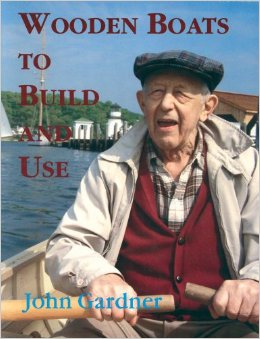
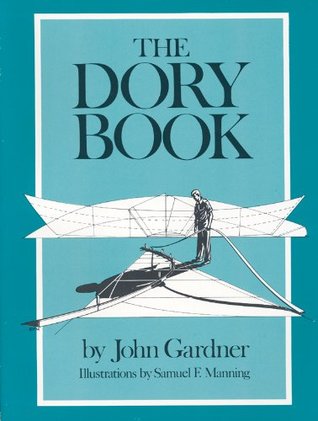
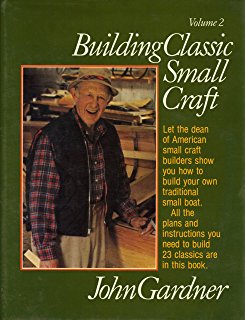
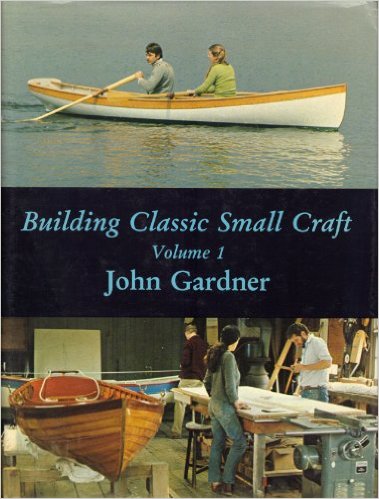
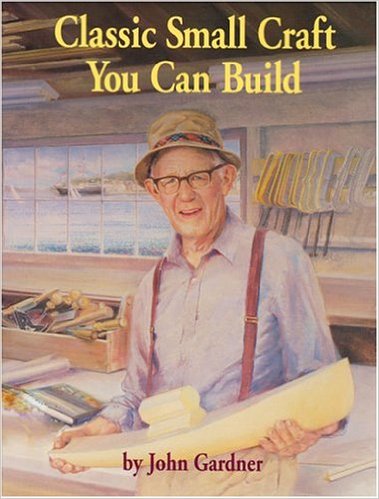
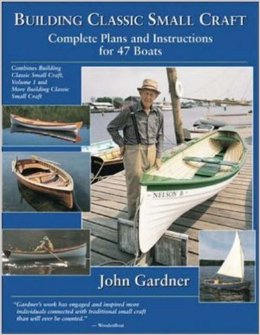
the john gardner GRANT
The John Gardner Grants are designed to support projects that broaden our traditional small craft heritage, and for which sufficient funding would otherwise be unavailable.
Our mission is to preserve, continue, and expand the achievements, vision, and goals of John Gardner by enriching and disseminating our traditional small craft heritage and supporting your efforts with competitive grants. Eligible projects are those which research, document, preserve, and replicate traditional small craft, associated skills (including their construction and uses) and the skills of those who built and used them. Youth involvement is encouraged.
The John Gardner Grants are competitive and reviewed on a rolling basis by the John Gardner Grant Committee of the Traditional Small Craft Association (TSCA). The source of funding is the TSCA John Gardner Fund, which was established in 1997 at the Maine Community Foundation (MCF). MCF promotes active philanthropy by stewarding charitable funds and making effective grants. Funding available for projects will be determined annually. The funding for any individual project ranges from about $200 to $2,000.
Multiple grants will not be awarded to an individual or organization in a single year.
the RULES
Eligible applicants include historians, authors, boatbuilders, naval architects, designers, small craft specialists, archeologists, maritime heritage specialists, students, museums, educational programs, non-profit organizations, community-based groups, and anyone else with demonstrated interest in and knowledge of traditional small craft. No affiliation with a museum or other academic organization is required.
Awarded funds may only be spent on direct costs, including materials, supplies, heritage specialists, services, publication fees, and travel. Funds may not be used to supplant staff salaries. Overhead costs are not eligible for reimbursement.
Projects must be centered around or very strongly related to traditional small craft. Projects must have tangible, enduring results that are published, exhibited, or otherwise made available to the interested public. These results may include (but are not limited to) boats, written and graphical documentation (including boat plans), monographs, preservation of artifacts, exhibits, etc.
Recipients must furnish a report on the results of the project at the conclusion of the grant period, including published materials. A summary report must also be furnished which is suitable for publication in The Ash Breeze, the quarterly journal of TSCA. Periodic progress reports are strongly encouraged.
Recipients must acknowledge the support of the TSCA John Gardner Fund in all publications, printed programs, and signage.
Recipients may be required to demonstrate satisfactory insurance coverage as determined by the John Gardner Grant Committee. Insurance requirements will be determined on a case-by-case basis. Recipients must comply with all appropriate federal, state and local regulations, ordinances, statutes, and laws governing the sponsored project.
Documentation of the use of John Gardner Grant funds must be maintained and furnished upon request. A summary of the use of the grant funds must be reported at the conclusion of the grant period.
For all purposes hereof, “traditional small craft” shall mean boats built from design developed prior to the gasoline marine engine, for sail or manual propulsion. Modern or historical variants or adaptation of traditional designs fall within this definition. [Taken from TSCA Bylaws, Article II]
to APPLY
Grant applications may be submitted at any time, and will be considered on a rolling basis.
To apply electronically: download the form, fill it out and email it to Gregg Schneider at greggschneider48@gmail.com
To apply via regular mail: download the application, print it out, fill it out and send it to:
Gregg Schneider
53 Red Oak Dr.
Tabernacle, NJ 08088
SUPPORT
Your donation in any amount to the TSCA John Gardner Fund will increase its endowment, and thus our ability to support these Gardner Grants. Tax-deductible donations to the TSCA John Gardner Fund may be sent directly to the Maine Community Foundation. You can send checks to our address or you can donate online.
Maine Community Foundation
Attn: TSCA John Gardner Fund
245 Main Street
Ellsworth, ME 04605
